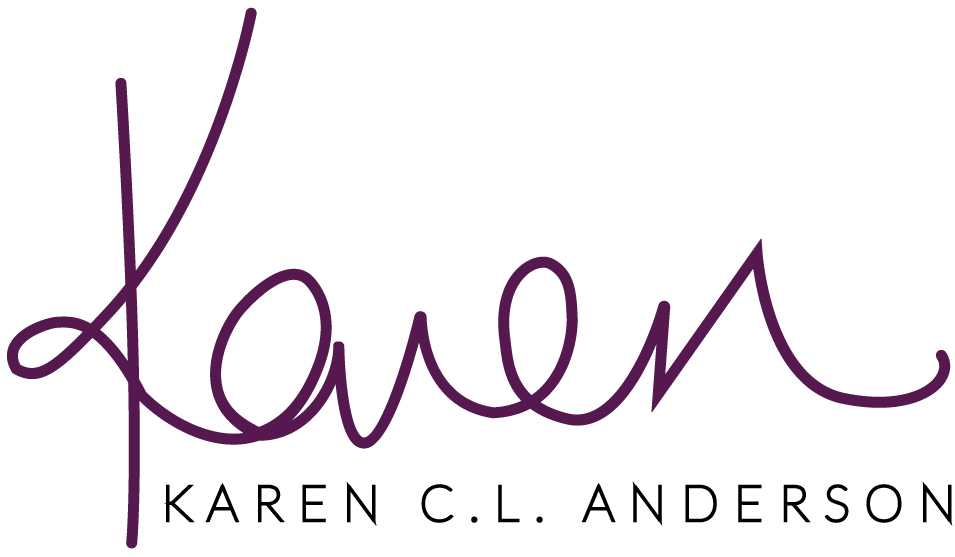what reframing your mother story *isn't*
Many of us live with chronic emotional pain related to the relationship we have with our mothers. It becomes something we define ourselves by.
And just like those who experience chronic physical pain, "Forging an identity around one’s pain is a natural response to an isolating and often invisible experience. Internally, it is a way to make sense of what is happening in one’s body; externally, a way to push back on the stigma of the condition, to ask for (and receive) accommodations and help." ~ Isobel Whitcomb, When Chronic Pain Becomes Who You Are
Whether it's physical pain or emotional pain (or both, because they often go hand-in-hand), those of us who find ourselves here will sometimes cling to this identity because:
...we know what we experienced and what we may continue to experience,
...we've not been believed by others ("it's all in your head"),
...or if it's acknowledged at all, we're told to just get over it, stop complaining, and count our blessings.
"Because [insert moral platitude here]."
[insert eye roll here]
This sets up a harmful binary:
You're either the rugged individual stoic hero who doesn't need anyone and rises above through sheer will and strength or you're the pathetic helpless victim wallowing in a continual pity party.
Shame (that wasn't yours to begin with) is part of both these identities.
You need to be able to acknowledge what you experience(d) and not be gaslit or have it minimized AND you want to move away from that emotional-pain-as-identity so you can live the authentic, connected, vital life you so crave.
Moving away from emotional-pain-as-identity doesn't mean saying what you experienced didn't happen, or minimizing it, or comparing yourself to someone who had it "worse."
It means no longer shaming yourself because it happened.
A couple of weeks ago I shared this abuse definition/framework from David Bedrick. Abuse is:
#1 A hurt, assault, or neglect, be it physical, emotional, mental, or spiritual
#2 A social, personal, or physical power differential (parent/child, teacher/student, etc.), which leads to...
#3 A lack of consent, because the person being abused doesn’t feel free not to consent, which leads to...
#4 The inability of the abused person to adequately defend themselves, to say, "NO! Stop it!" or to leave, or to physically fight back
Naming abuse is important. And, when you're clear about this definition, saying your mother is or was abusive...
...isn't "playing the victim."
...isn't blaming.
...isn't even an accusation.
...doesn't mean you're stuck in the past.
...doesn't mean you wish harm on your mother.
...doesn't mean you haven't grown or evolved.
...isn't a "negative" story that you have to "reframe."
The compulsion to doubt, minimize, question, downplay, sugarcoat, or silver line, comes from shame, and the reason we experience shame around abuse is because we are made to believe it happened because of us, or because there's something wrong with us, rather than seeing it as something that happened to us.
We live in a culture of abuse.
"Abuse culture is the framework of violence that we live in. It permeates and colors every aspect of our world, culture, dynamics, institutions, language, and interactions. It dictates how we understand, speak about, and name abuse, harm, hurt, assault, violence, and trauma, or more accurately how we don’t." ~ Briana L. Urena-Ravelo
And THIS (along with that internalized shame) is why, if your mother is hurtful to you now, even though it may no longer fit the above definition of abuse, you "consent" by not having healthy boundaries, and you don't say, "NO, stop it" or "OUCH that hurts!"
Instead, you seethe with anger or rage, last out at her, crumple in hurt and upset, and/or you binge something in an effort to numb the pain. <-------- I have done all of those things. I call it the fury-devastation-shame cycle and it is painful AF.
"For many people like me, it turns out, moving away from pain as an identity isn’t the result of recovery—it’s actually the treatment." ~ Isobel Whitcomb
You can move away from emotional-pain-as-identity without gaslighting yourself about what you experience(d).
It's why creating an intentional identity is one of the three core skills (along with creating safety and creating healthy boundaries) I teach in the Mother Lode.
It's about moving away from the pain you experience in relation to your mother and towards an identity that you consciously choose, not an identity that shame chooses for you.
Much, much love,
Karen
P.S. What is coaching with me like? You have an ongoing, enthusiastically consentual conversation with a peer (me) in which you feel safe in owning who you are and who want to be, so you can BE that out in the wide world, with your mother, your creativity, your business, your partner, your kids...yourself. Check out the various options here.
Sometimes it's practical. Sometimes is philosophical. Sometimes it's about asking simple questions. Sometimes it's about asking hard questions. Sometimes there's teaching. Sometimes there's storytelling.
Perspectives change.
Unshaming happens.
Awareness happens.
Growth happens.
Self-respect happens.
Self-trust happens.
Healthy boundaries are established.
Cycles and patterns are broken.
There's less guilt, rage, shame, and resentment.
And more aliveness. More YOU.
